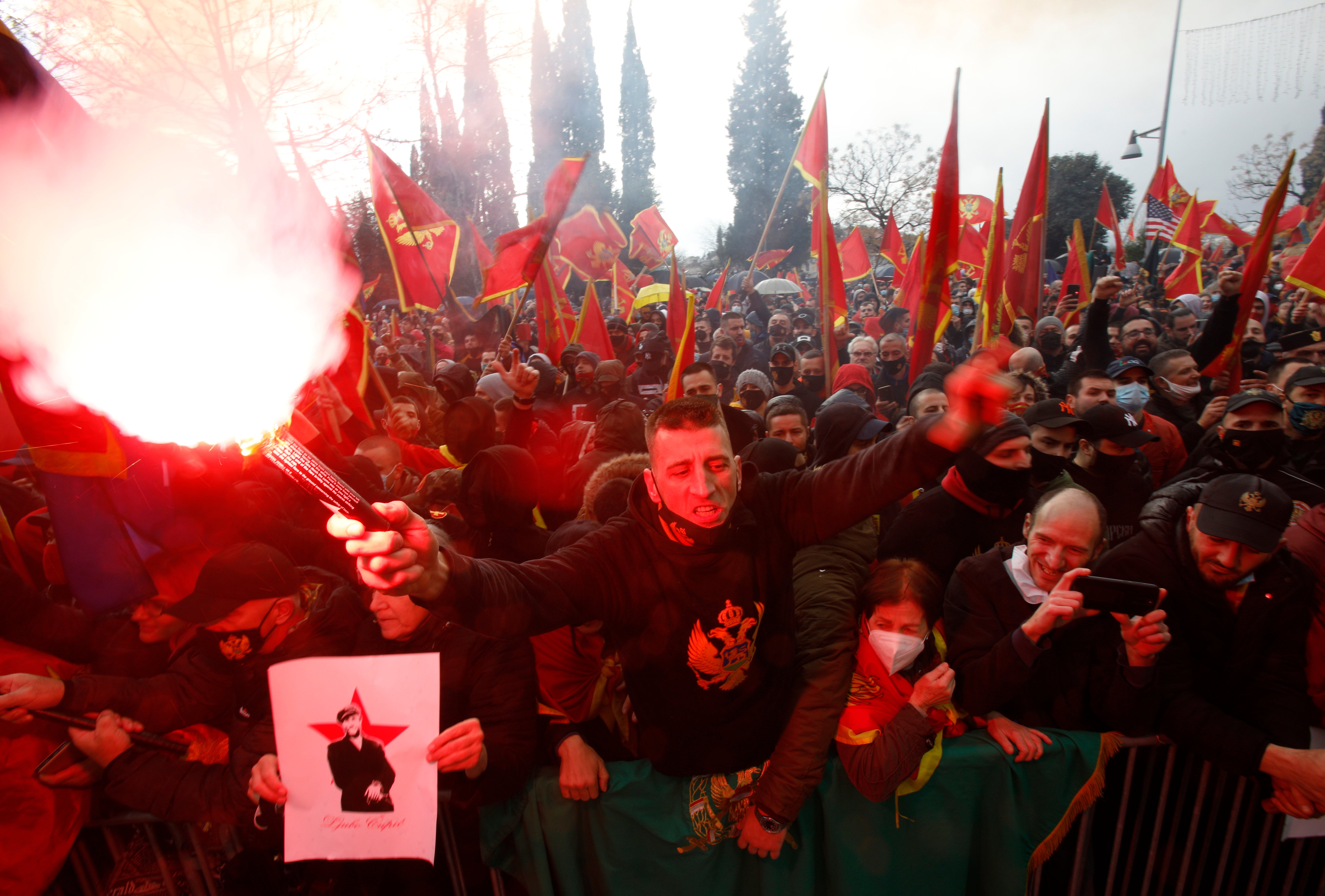Montenegro lawmakers change religious law opposed by church
Montenegrin lawmakers have amended a law on religious rights and property that earlier was strongly opposed by the Serbian Orthodox Church

Your support helps us to tell the story
From reproductive rights to climate change to Big Tech, The Independent is on the ground when the story is developing. Whether it's investigating the financials of Elon Musk's pro-Trump PAC or producing our latest documentary, 'The A Word', which shines a light on the American women fighting for reproductive rights, we know how important it is to parse out the facts from the messaging.
At such a critical moment in US history, we need reporters on the ground. Your donation allows us to keep sending journalists to speak to both sides of the story.
The Independent is trusted by Americans across the entire political spectrum. And unlike many other quality news outlets, we choose not to lock Americans out of our reporting and analysis with paywalls. We believe quality journalism should be available to everyone, paid for by those who can afford it.
Your support makes all the difference.Montenegro's new, pro-Serb authorities have amended a law on religious rights and property that was passed by a previous government but was strongly opposed by the Serbian Orthodox Church which led months of protests against the bill.
The parliament early Tuesday approved the legislative changes with 41 votes in the 81-member assembly. The revised law was supported by the ruling pro-Serb lawmakers while pro-Western opposition boycotted the session.
The changes abolished the sections on ownership that the Serbian church insisted were designed to strip it of its property in Montenegro despite repeated denials by the previous government.
Church-led rallies against the law helped strengthen the pro-Serb camp ahead of an August parliamentary vote that led to the ouster of the long-ruling Democratic Party of Socialists.
Montenegro declared independence from a union with Serbia following a 2006 referendum. The country’s residents remain divided over relations with Belgrade. Some 30% of Montenegrins identify themselves as Serbs, and the Serbian Orthodox Church enjoys the biggest following of any organized religion.
The previous government, led by the DPS, steered Montenegro away from the influence of Serbia and Russia. The Adriatic nation joined NATO in 2017 and is seeking European Union membership.
Montenegro's new Prime Minister Zdravko Krivokapic said on Twitter that the religious law changes “set right the injustice” toward the Serbian Orthodox Church.
Thousands of opponents of the changes rallied Monday outside the parliament building, accusing the new government of pushing Montenegro back into Serbia's grip. Waving Montenegrin flags, the protesters chanted “Treason!” and “This is not Serbia!” No clashes were reported.